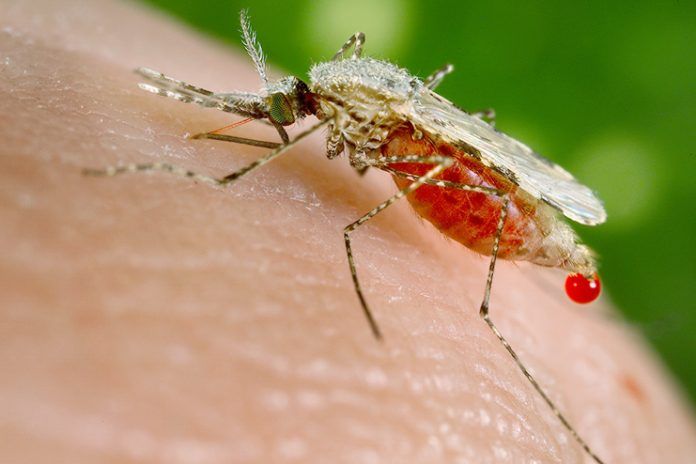Affiliate Disclaimer
Some links in this article are affiliate links. We may earn a small commission if you make a purchase through these links, at no extra cost to you. We only recommend products we find useful to our readersMosquito bites are quite common, now, aren’t they? Sometimes we pay heed to these and reach for an over the counter ointment while other times, we just rub over the bite to get rid of the sting and inflammation. But, did you know that with each bite, there are possibilities of you contracting malaria, if the mosquito is infected? Malaria treatment is gradually gaining prominence because of the advancing medical science.
That being said, the various malaria home remedies have been in use since decades because of their actual benefits which are why it is never a good idea to sidetrack these natural remedies because sometimes, they tend to be better in providing with cure than the over the counter remedies. Sounds a bit farfetched, doesn’t it?
In order to clear the doubts and also help with detailed information regarding the various remedies to cure malaria, let us delve into this article.
What is Malaria?
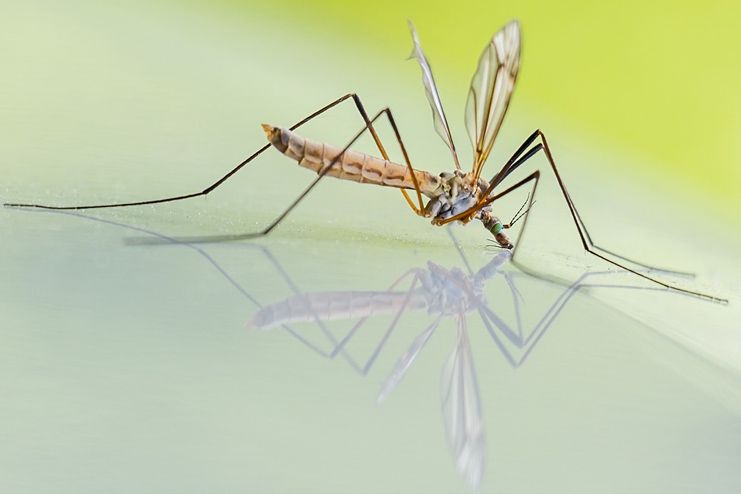 Malaria is a parasite transferred disease caused when an infected Anopheles mosquito which bears the Plasmodium parasite bites a healthy human. Many people often don’t take the mosquito bites as something serious when they have the capability of inflicting hazardous effects on one’s body.
Malaria is a parasite transferred disease caused when an infected Anopheles mosquito which bears the Plasmodium parasite bites a healthy human. Many people often don’t take the mosquito bites as something serious when they have the capability of inflicting hazardous effects on one’s body.
The process of infestation and spreading of the mosquito is quite often a life threatening disease and if not treated on time, has the capability of even causing death. Once the parasite enters the bloodstream, it travels down to the liver which is where they mature and proliferate.
The matured parasites after their stay in the liver are released back into the bloodstream, where they come and directly infect the red blood cells of the body. The parasite is spread in the bloodstream within a time frame of 48-72 hours where they multiply insignificant amount and then gradually burst open.
Many people often tend to ask if Malaria is contagious and technically, the answer is No, it isn’t. You can’t technically catch it via any form of physical contact. The parasite can only mature and cause the infection only when it is directly exposed into the bloodstream of an individual.
What are the Causes of Malaria?
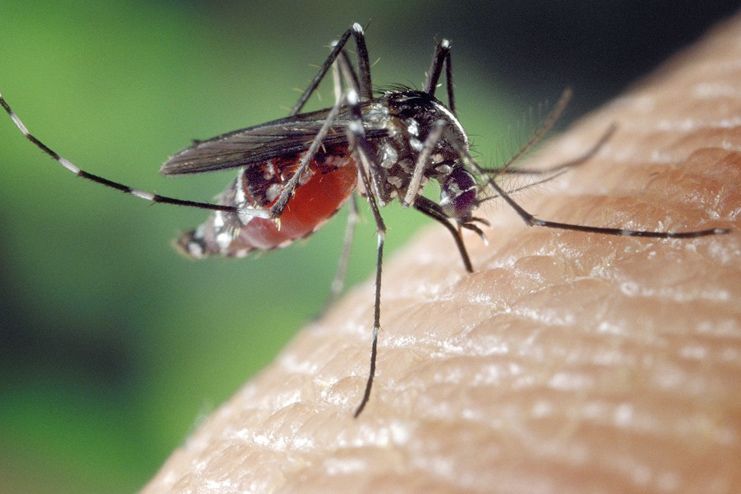 If you are wondering about the common causes, Malaria is primarily caused and transferred through mosquitoes. Primarily, it is the form of infected female Anopheles mosquito which when bites a healthy individual, ends up transferring the parasite from them into the healthy individual.
If you are wondering about the common causes, Malaria is primarily caused and transferred through mosquitoes. Primarily, it is the form of infected female Anopheles mosquito which when bites a healthy individual, ends up transferring the parasite from them into the healthy individual.
As the primary mode of transmission of the malaria parasite is completely dependent on the blood, there are a few common malaria fever causes apart from the mosquito bites.
Some of these common causes of malaria include:
- Blood transfusion from an infected individual
- During organ transplant
- Usage of infected syringes or needles
- Can be transferred via a mother to their baby during parturition
- Exposed presence to an environment that is prone to malaria and the infection
What are the Types of Malaria?
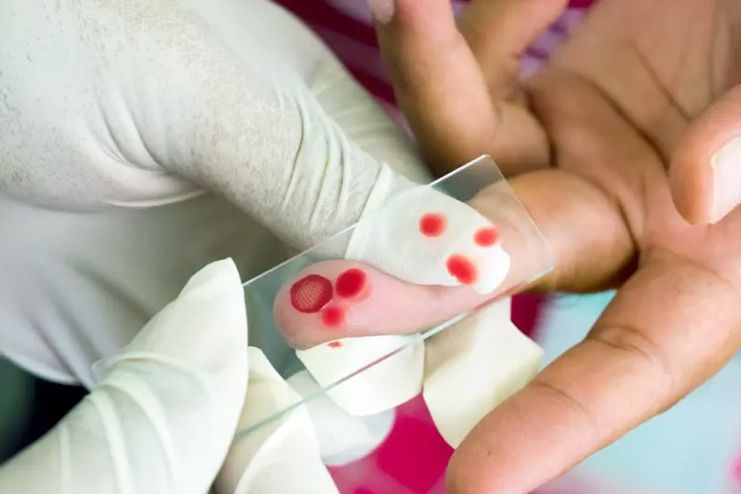
Even while you might think that Malaria is restricted to transmission only via mosquitoes, then, how come do they have types and sub-categories, right? In reality, Malaria is categorized into five different types, depending on the type of malaria parasite that is infecting the person.
The five types of Malaria parasites include:
Let us go down from the most dangerous to the least one.
Plasmodium falciparum – this is one of the deadliest malaria parasites which affects over 90% of the residents of the sub-Saharan African region. It induces higher risks of death in an individual and needs immediate medical and professional care.
Plasmodium malariae – this is not one of those life threatening malaria fevers but leaves behind quite an impact in one’s overall well being, if left untreated.
Plasmodium ovale – this is quite a bit of a different kind of malaria because the parasite infested into the body with the infected mosquito bite can actually reside in the liver for months and even years (4 years) before they showcase their symptoms. It is often a rare form of malaria that is witnessed in individuals.
Plasmodium knowlesi – this is only predominantly witnessed and noticed in the areas in and around South-east Asia.
Plasmodium vivax – this is the most common type of malaria parasite is the Plasmodium vivax which is found the most in majority of the widespread geographical locations.
What are the Symptoms of Malaria?
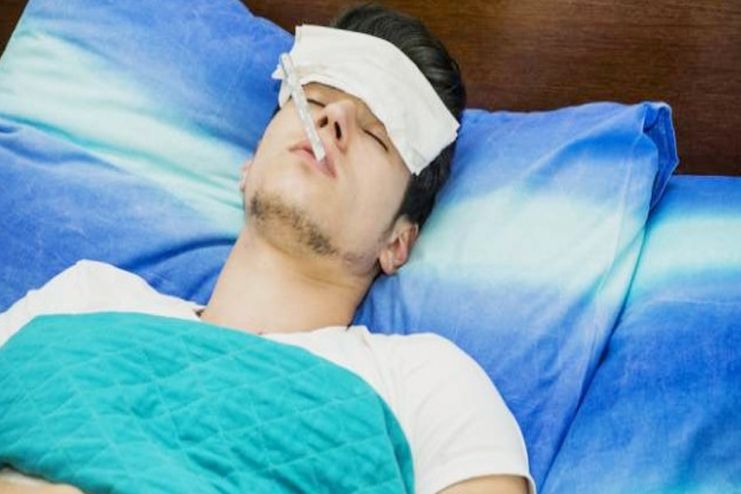
One downside of Malaria fever is the fact that the symptoms of malaria aren’t externally showcased before 10 days or even 4 weeks after the mosquito has bitten the individual. As mentioned in the types of malaria, there are even types which infect the body but remain dormant in the body for months or sometimes even years.
In order to make it easier for you to detect, let us walk ourselves through the common malaria signs and symptoms. The common and primary ones include:
- Consistent shaking chills that can range from moderate to severe
- High fever accompanied with profuse sweating
- Headache and dizziness
- Nausea and vomiting
- Pain in the abdominal region of the body
- Diarrhea
- Anemia because of the infection attacking the healthy RBCs
- Muscle and joint pain
- Convulsions
- Bloody stools during defecation
- Coma (in severe and the most extreme cases)
Home Remedies for Malaria Treatment
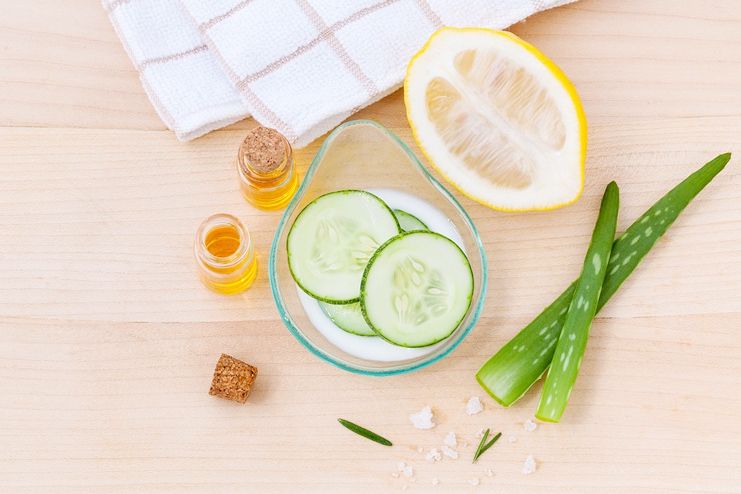 Now that we have arrived to this section, let us focus on the few home remedies for malaria treatment at home that actually does work wonders. While professional medical is a must if the condition is not cured by these natural remedies, these can effectively keep the symptoms at bare minimum and possibly cure it if the same is administered incorrect dosage.
Now that we have arrived to this section, let us focus on the few home remedies for malaria treatment at home that actually does work wonders. While professional medical is a must if the condition is not cured by these natural remedies, these can effectively keep the symptoms at bare minimum and possibly cure it if the same is administered incorrect dosage.

Check Out the Most Popular Self Care Tips to Treat Malaria
1. Vitamin B for Malaria Treatment
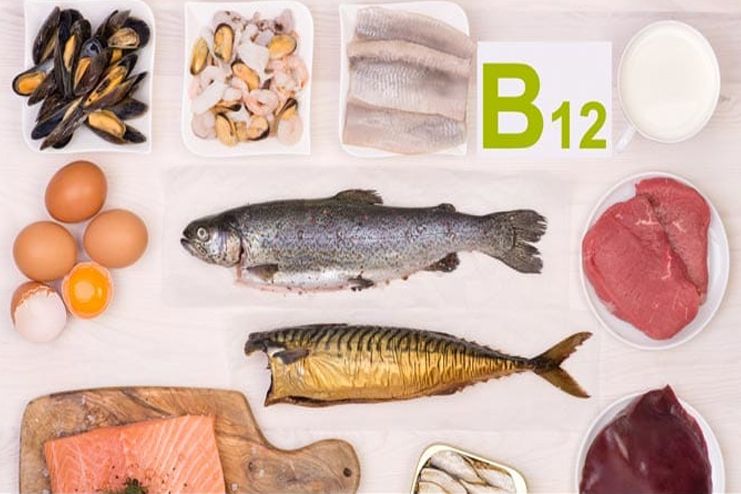
Vitamin B, especially Vitamin B12 (R) is regarded as a prophylactic which is very beneficial in not just treating malaria naturally but preventing it for good measures from infestation and spreading. Vitamin B12, which is otherwise known as cobalamin, cumulatively with combines with folate in the body to produce healthy red blood cells in the body.
Several travellers tend to start consuming Vitamin B12 supplements before visiting any area subjected to Malaria fever because it acts as a mode of prevention from contracting the disease in the first place. If you are worried whether or not the excessive consumption of this Vitamin adversely affects one’s body, it actually doesn’t because it is a water-soluble vitamin.
What To Do?
- Increase the consumption of Vitamin B12 rich foods like that of Meat, fishes, milk and several of the fortified foods.
- If you want to induce a way to prevent the possibility of combating the malaria parasite, switch to some Vitamin B12 supplements as per the doctor prescription.
2. Cinnamon for Malaria Treatment
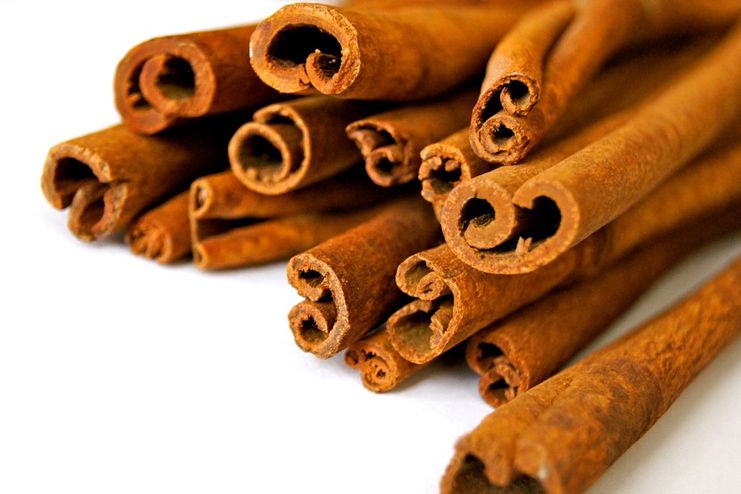 Cinnamon has a combination of amazing anti-microbial (R), anti-inflammatory (R) as well as antioxidant (R) properties which boosts the overall well being of an individual suffering from Malaria. The antimicrobial properties help curb the further infestation and spreading of the parasite in the body while the antioxidant properties help regulate the levels of oxidative stress in the body that is often caused because of the parasites.
Cinnamon has a combination of amazing anti-microbial (R), anti-inflammatory (R) as well as antioxidant (R) properties which boosts the overall well being of an individual suffering from Malaria. The antimicrobial properties help curb the further infestation and spreading of the parasite in the body while the antioxidant properties help regulate the levels of oxidative stress in the body that is often caused because of the parasites.
What To Do?
- Mix one teaspoon of cinnamon powder to a glass of water
- Add a pinch of black pepper powder to the mixture
- Drink it as it is or add some honey to better its taste
Drink this once every day
[Check More Benefits of Cinnamon and Honey]
3. Turmeric for Malaria Treatment
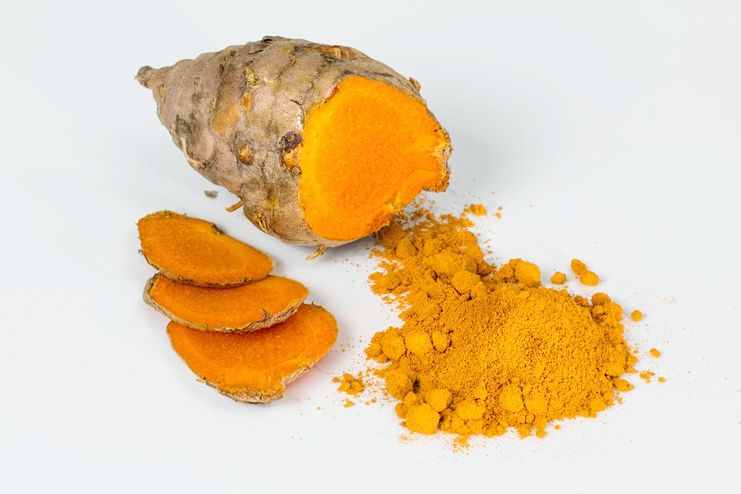 Turmeric and its usage in the everyday life of humans for one’s well being is not an uncommon and alien concept, now, is it? The active compound in the turmeric, Curcumin (R), plays a crucial role in combating the signs and symptoms of Malaria in an individual. The effect of turmeric (R) is very well known and pronounced in the treatment of the Malaria is caused by the Plasmodium falciparum parasite.
Turmeric and its usage in the everyday life of humans for one’s well being is not an uncommon and alien concept, now, is it? The active compound in the turmeric, Curcumin (R), plays a crucial role in combating the signs and symptoms of Malaria in an individual. The effect of turmeric (R) is very well known and pronounced in the treatment of the Malaria is caused by the Plasmodium falciparum parasite.
Curcumin inhibits the growth of the chloroquine resistant Plasmodium falciparum which can inflict deathly effects in an individual. Not just that, the overall anti-inflammatory as well as anti-infective (R) properties work together for treating malaria fever.
What To Do?
- Mix half a teaspoon of turmeric powder to a glass of warm milk
- Drink the turmeric milk every day once before bed at night
4. Orange Juice for Malaria treatment
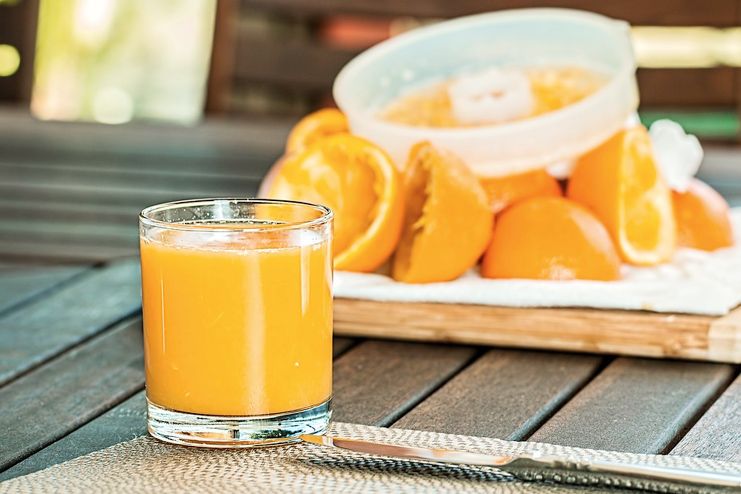 The combined nutritious and well as Vitamin C (R) properties in the Orange juice is very beneficial to cure malaria parasite infestation. The antioxidant properties of the Vitamin C (R) helps in boosting one’s immunity which helps fight off the parasitic infestation that causes the signs and symptoms that one witnesses during the malaria fever.
The combined nutritious and well as Vitamin C (R) properties in the Orange juice is very beneficial to cure malaria parasite infestation. The antioxidant properties of the Vitamin C (R) helps in boosting one’s immunity which helps fight off the parasitic infestation that causes the signs and symptoms that one witnesses during the malaria fever.
Since many people often find an aversion to food during being affected with Malaria, they tend to stick to keep themselves stuck to a diet concerning water and orange juice. It helps keep them not just hydrated but filled with the necessary nutrition as well.
What To Do?
Drink a glass of orange juice in between meals to help boost your immune system to fight the infection
5. Ginger for Malaria Treatment
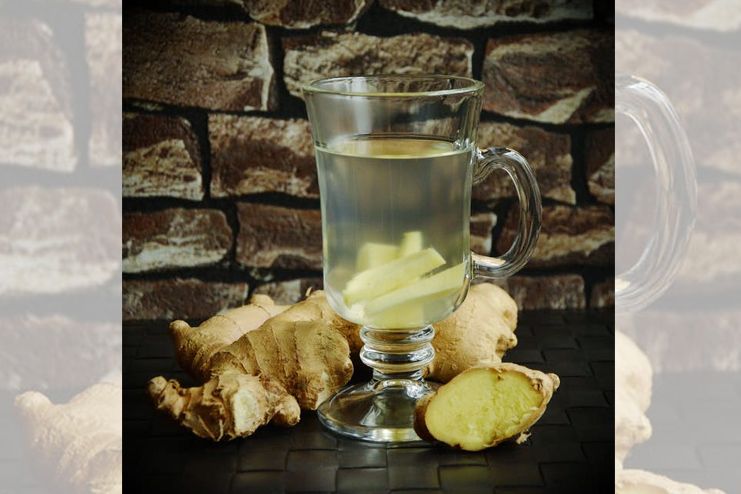 Ginger and its antimicrobial as well as anti-inflammatory (R) benefits is not a new thing. Not just that, the concoction of ginger aids in inflicting positive immunity-boosting effects (R) in the body which cumulatively fights off the impending infection in the body that is caused because of the parasites infesting the bloodstream. Read more health benefits of Ginger Tea.
Ginger and its antimicrobial as well as anti-inflammatory (R) benefits is not a new thing. Not just that, the concoction of ginger aids in inflicting positive immunity-boosting effects (R) in the body which cumulatively fights off the impending infection in the body that is caused because of the parasites infesting the bloodstream. Read more health benefits of Ginger Tea.
What To Do?
- Crush an inch of raw ginger
- Add this to a glass of warm water and let it steep for 10 minutes
- Add 1 teaspoon of honey to it and mix everything well
- Drink this concoction every day once or twice a day
6. Apple Cider Vinegar for Malaria Treatment
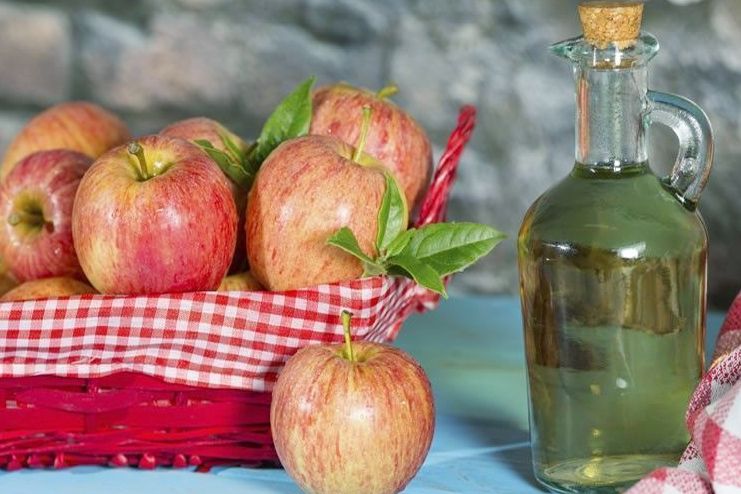
Apple cider vinegar has the perfect combination of antimicrobial (R), anti-inflammatory (R) as well as antioxidant properties which have amazing benefits for malaria treatment at home. It even has proper benefits in combating the presence of fever in an individual which is definitely an added bonus. The antibacterial properties keep the spreading on the parasite in check while the anti-inflammatory properties help fight off the muscle and abdominal pain.
What To Do?
For General Use:
- Mix 1 tablespoon of apple cider vinegar to a glass of water
- Drink this once or twice daily to help fight off the malaria parasite in the body
For the Malaria Fever:
- Mix 3-4 tablespoons of Apple Cider Vinegar to a bowl of water
- Soak a cotton cloth in the solution and wring out the excess water
- Place the wet cloth on your temples and claves and keep it there for 10 minutes
- Repeat this 3-4 times a day to get rid of the malaria fever
7. Grapefruit for Malaria Treatment
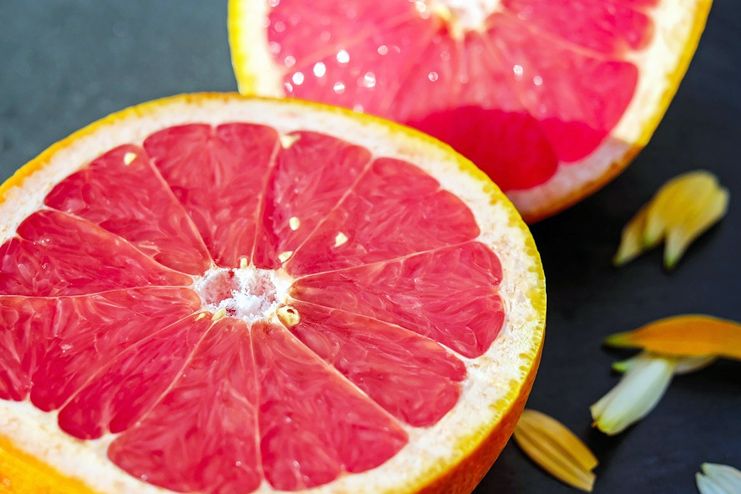 Even though there are limited scientific evidences to back the claims up, grapefruit (R) is considered as one of the most effective remedies to cure malaria (R) because of the presence of quinine like properties that are very effective in fighting off the malaria parasites. It is also filled with nutrition and beneficial ones at that which further help contribute to the proper cure of the malaria infection that leaves an individual feeble and weak.
Even though there are limited scientific evidences to back the claims up, grapefruit (R) is considered as one of the most effective remedies to cure malaria (R) because of the presence of quinine like properties that are very effective in fighting off the malaria parasites. It is also filled with nutrition and beneficial ones at that which further help contribute to the proper cure of the malaria infection that leaves an individual feeble and weak.
What To Do?
- Consume a concentrated concoction of grapefruit
- Alternatively, you can just increase grapefruit in your diet itself, either as a snack in between meals or even in the form of juice
8. Fenugreek Seeds for Malaria Treatment
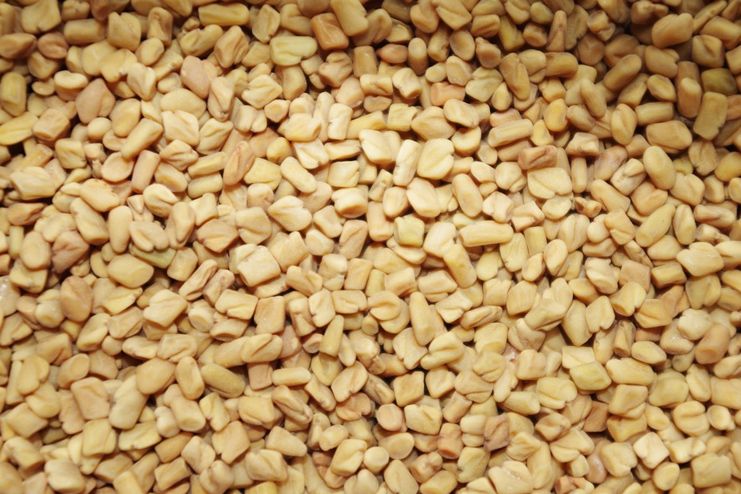 One of the primary side effects of contracting malaria is the fact that it leaves the patient very weak and feeble because of their affected immune system. The consumption of fenugreek helps with the same by boosting one’s immune system (R) and helps fight the parasites (R) that are primarily responsible for the condition in the first place.
One of the primary side effects of contracting malaria is the fact that it leaves the patient very weak and feeble because of their affected immune system. The consumption of fenugreek helps with the same by boosting one’s immune system (R) and helps fight the parasites (R) that are primarily responsible for the condition in the first place.
What to do?
- Soak a tablespoon of fenugreek seeds in a glass of water overnight
- Drink this the next morning in an empty stomach
- Do this every morning till you gain back the lost energy and immunity
Side Note: If you are diabetic, make sure that you consume it in sparing amount because fenugreek lowers the blood glucose levels and excess consumption can lead to altered glucose levels in the body.
9. Mustard Oil for Malaria Treatment
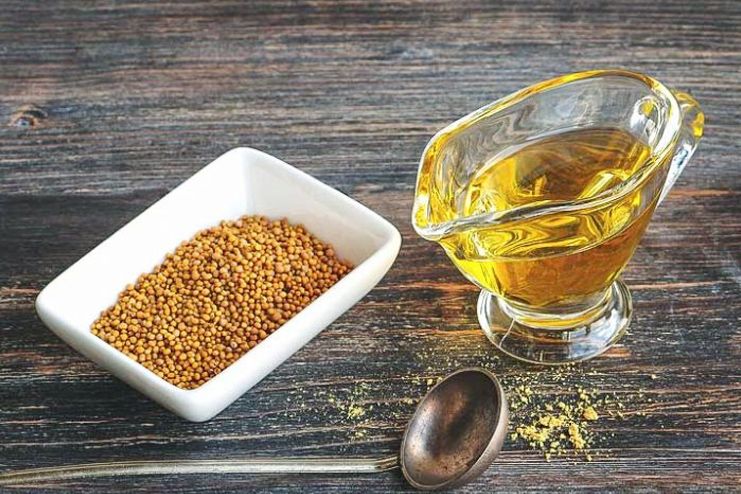
While many may not like the consumption of mustard oil because of its strong flavor and pungency, this actually does have beneficial effects in treating malaria (R) naturally with its daily consumption. Because of its infection-fighting properties, it is very beneficial as an anti-malaria treatment.
What To Do?
Consume 10 mg of mustard oil as one dosage throughout the day
10. Citrus Limetta Fruit for Malaria Treatment
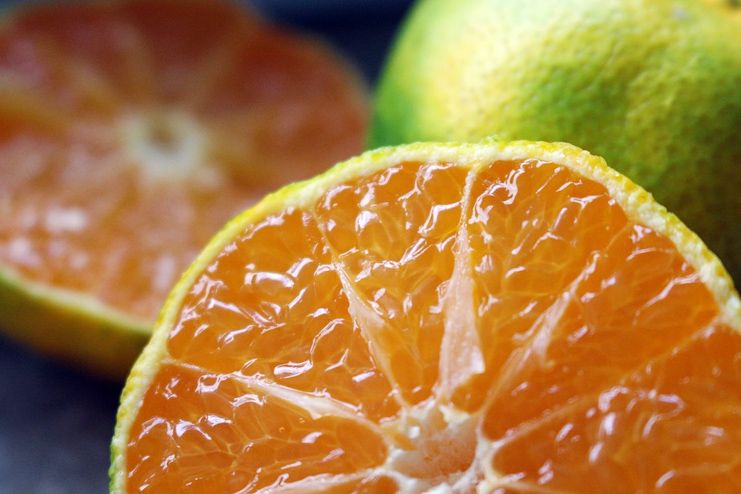 Citrus Limetta, otherwise commonly known as Sweet Lime, is also a beneficial remedy that malaria can be cured with. The presence of the flavonoids (R) in the fruit has effective benefits in curbing the infection and pathogenesis of the Plasmodium parasites that is the primary cause of malaria. It also has a good concentration of Vitamin C which is yet another beneficial factor that boosts one’s overall immune system, thereby healing the signs and symptoms relating to Malaria.
Citrus Limetta, otherwise commonly known as Sweet Lime, is also a beneficial remedy that malaria can be cured with. The presence of the flavonoids (R) in the fruit has effective benefits in curbing the infection and pathogenesis of the Plasmodium parasites that is the primary cause of malaria. It also has a good concentration of Vitamin C which is yet another beneficial factor that boosts one’s overall immune system, thereby healing the signs and symptoms relating to Malaria.
What To Do?
- Consume the sweet lime wedges in between meals as a snack
- Alternatively, you can also drink the juice of this fruit once or twice a day for beneficial effects
11. Holy Basil Leaves for Malaria Treatment
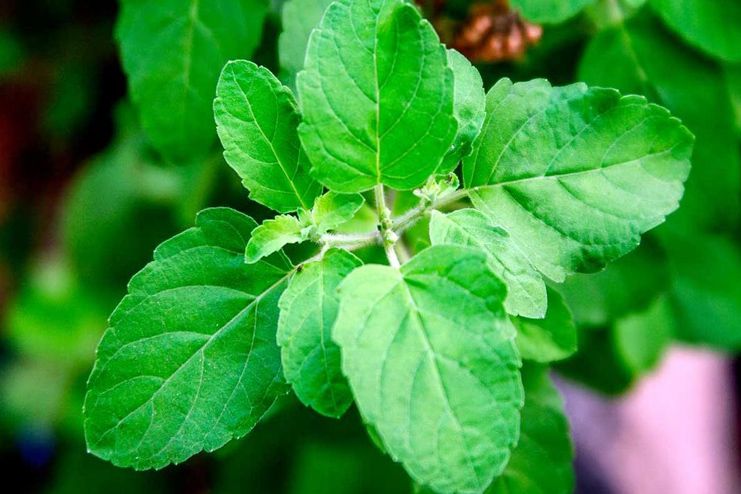
The usage of Holy Basil in the treatment of several health issues (R) has been practised for decades. The leaves of this plant have efficient anti-malarial properties (R) which is exactly what helps prevent the infestation of the infection caused by the parasites. Regular ingestion of this herb helps fight off the infection and also helps curb persistent nausea and feelings of vomiting one feels during the process.
What To Do?
- Crush 10-12 holy basil leaves (R) to extract the juice out of it
- Add 1/4th teaspoon of black pepper powder to it and mix it well
- Consume this to reap the maximum benefits
12. Fever Nut for Malaria Treatment
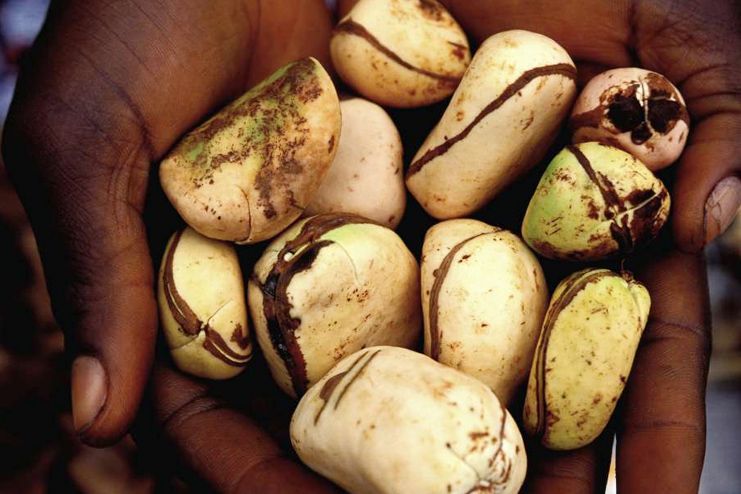
Fever nuts are a rarely found remedy for the treatment of malaria but with the growing popularity of these, they are now readily available in the herbal stores where they can be bought and stored for further use. It helps with the deadly malaria fever (R) that the majority of the patients complain the most about. It brings down the fever and regulates the body temperature so as to ensure that the same doesn’t negatively affect the overall well being of an individual.
What To Do?
- Consume the fever nut seeds with a glass of water two hours before the expected onset of the malarial fever and one hour after the fever
- Do this till the symptoms of malaria wither down completely
13. Lemon Water for Malaria Treatment
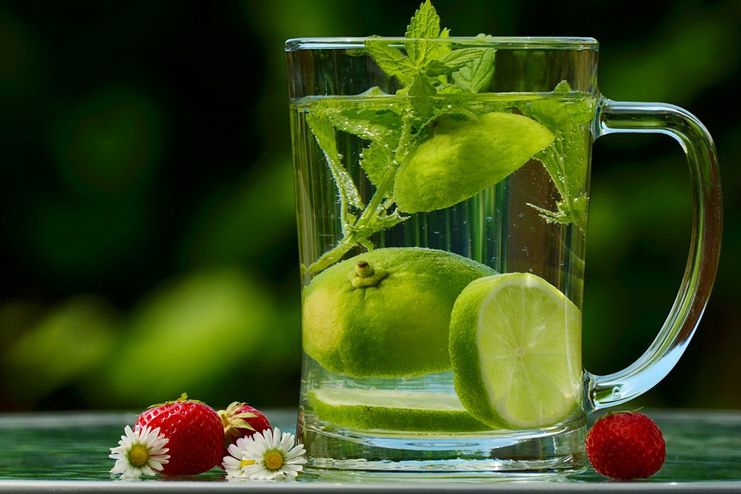 As mentioned in some of the previous malaria home remedies, the consumption of Vitamin C (R) during Malaria plays a crucial role in combating the signs and symptoms relating to Malaria. The Vitamin C from the lemon water helps in boosting one’s overall immunity and fights off any form of oxidative stress that the body is subjected to. The water helps keep the body hydrated which is an added bonus in combating the condition of malaria.
As mentioned in some of the previous malaria home remedies, the consumption of Vitamin C (R) during Malaria plays a crucial role in combating the signs and symptoms relating to Malaria. The Vitamin C from the lemon water helps in boosting one’s overall immunity and fights off any form of oxidative stress that the body is subjected to. The water helps keep the body hydrated which is an added bonus in combating the condition of malaria.
What To Do?
- Squeeze the juice of one lemon into a glass
- Fill it will 8 ounces of water
- Drink this multiple times throughout the day
14. Chirayta for Malaria Treatment
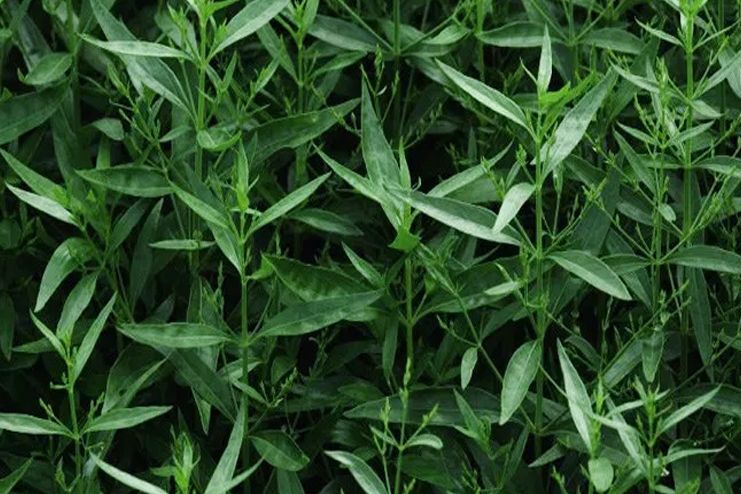
The primary benefits (R) of Chirayta, scientifically known as Swertia Andrographis paniculata, is in lowering the intermittent fever (R) that the majority of the people suffer during Malaria. It helps in thermoregulating the temperature of the body and helps bring it down to normal levels which are what helps in treating malaria fever.
What To Do?
- Boil some water in a pan
- Add a few Chirayta leaves (raw or dried)
- Add a few cloves and a stick of cinnamon to enhance the taste
- Let everything infuse and steep for 10 minutes
- Strain everything using a sieve or muslin cloth
- Drink 2-3 tablespoons of this concoction at once. Repeat this 4-5 times a day
15. Datura for Malaria Treatment
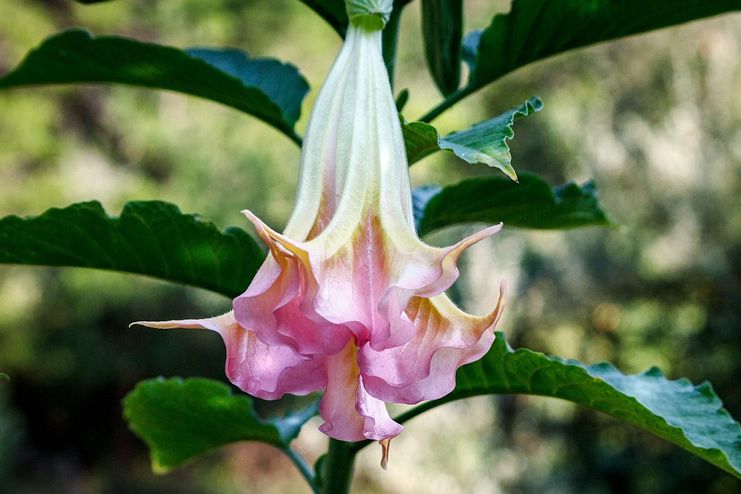 Even though there are not many scientific evidences to cement the claims about Datura in the treatment of Malaria (R), it is believed that it has beneficial effects in actually healing the fever that accompanies the disease of Malaria. It is the leaves of the Datura plant that helps reduce the effects (R) of the tertian type of Malarian fever.
Even though there are not many scientific evidences to cement the claims about Datura in the treatment of Malaria (R), it is believed that it has beneficial effects in actually healing the fever that accompanies the disease of Malaria. It is the leaves of the Datura plant that helps reduce the effects (R) of the tertian type of Malarian fever.
What To Do?
- Crush the datura leaves with some jaggery and make it into a small pill
- Consume this two hours before the possible attack of Malaria
16. Warm Water Therapy for Malaria Treatment
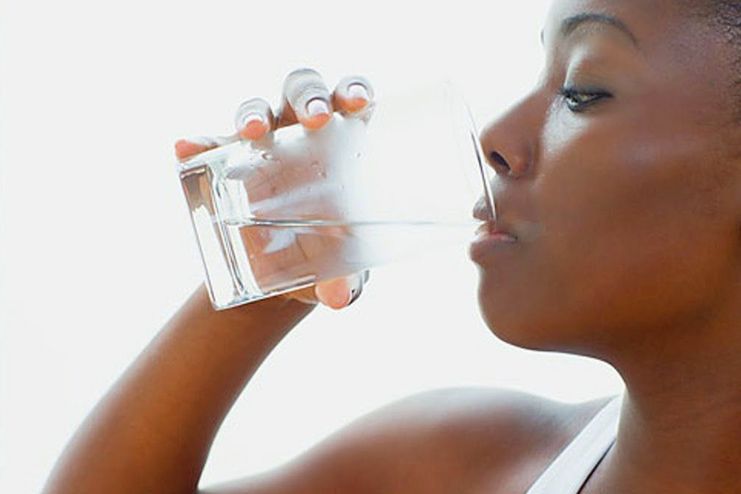
While everyone tends to opt for the advanced treatment methods along with the over the counter remedies, some people tend to undermine the beneficial effects that one can reap especially with the simple remedies. This is exactly the case with the consumption of warm water for treating malaria fever. The consumption of warm water helps with any form on internal inflammation and also regulates one’s bowel movement and prevents the symptoms of diarrhea and other digestion related setbacks.
What To Do?
Drink around 6-8 glasses of warm water during malaria to help cure it
17. Herbal Teas for Malaria Treatment
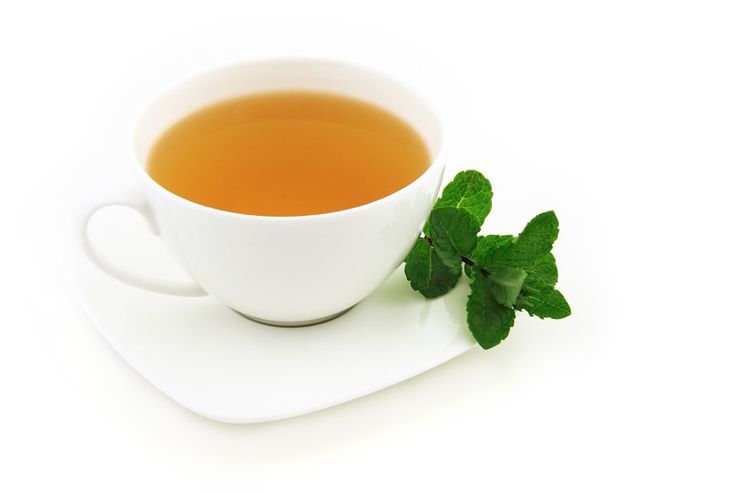
Herbal teas are not just hydrating for the body; it also helps in the entire process of healing and boosting one’s immunity to aid in the process of recovery when it comes to malaria. Some of the common types of herbal teas beneficial for the treatment of malaria fever include chamomile tea, green tea, etc. Even the antioxidant properties of the herbal teas help in boosting one’s overall immunity.
What To Do?
- Boil some water and pour it into a cup
- Add any herbal tea bags (as per your preference) into the hot water
- Let it steep for 5-10 minutes depending on how strong you want the tea to be
- Drink this 2-3 times a day
How to Prevent Malaria?
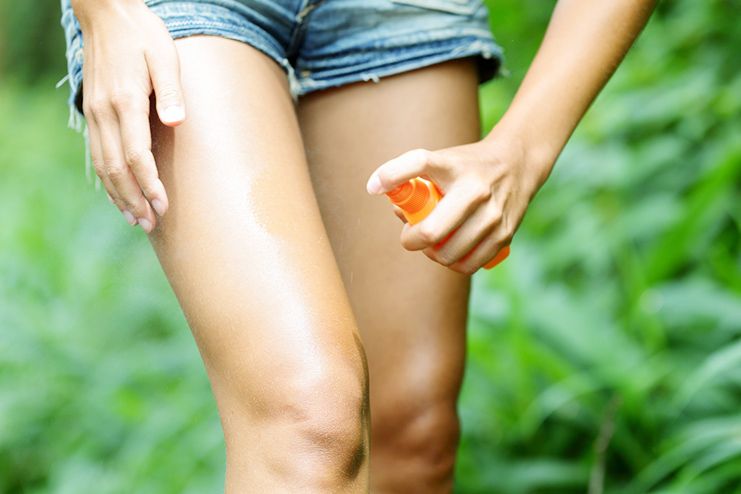
Prevention is always better than cure which is why it is always better to prepare yourself with all the preventive measures so as to avoid contracting the infection caused by the Malaria. As this is a vector-borne disease, it is not always a 100% possible to stay wary of the disease but there are several good preventive measures that one can adapt to keep the possibilities of Malaria at bay.
- Attire: If you live in an area that is prone to Malaria parasites and has have reported events of Malaria, make sure to wear fully covered clothes that cover your limbs and your entire body. This might seem like a lot but it is always safer to keep yourself covered to protect yourself from these pesky mosquitoes.
- Use Mosquito Nets: Sleeping under mosquito nets is yet another amazing preventive measure from Malaria. It not just provides you with a good night’s sleep but also helps keep those mosquitoes out of your reach.
- Mosquito repellents: Yet another amazing method of prevention is by using mosquito repellents before stepping out of the house. These keep the mosquitoes away because of the pungent smell and thus prohibit them from buzzing around your perimeter.
- Vitamin B12: One of the best ways to keep yourself healthy and prevent the spreading of the parasite-induced infection in Malaria is by increasing the intake of Vitamin B12 rich foods which have positive impacts in faster production of healthy red blood cells which is very beneficial in not just the overall well being of an individual but also in combating the further spreading of the parasitic infection.
- Prevent open storage of water (especially dirty water): Dirty water is one of the most common breeding grounds of the mosquitoes. Having an open waterlogged area in the house enhances the risks of infestation of mosquitoes near you which is why it is important that you throw away any stagnant water and keep the surroundings clean, in order to avoid the possibility of contributing to the parasitic growth of the infected mosquitoes.
Food for Thought With Some FAQs
 1. Can Malaria Come Back?
1. Can Malaria Come Back?
A: The recurrence of Malaria in an individual is technically dependant on their severity of exposure to the parasite bearing mosquitoes. If someone lives in an area that has a higher risk of malaria, there are chances of people contracting the disease more than once, if the safety precautions are not taken accordingly.
2. How Malaria Affects the Body?
A: As the infection spreads via the bloodstream, it spreads at a faster pace to all the parts of the body. Not just that, the presence of the mature parasite in the bloodstream also tends to deplete the levels of healthy RBCs in the body which leaves the person in a state of weakness and degraded immunity, thereby subjecting them to further degrading risks.
3: Can Malaria Cause Joint, Knee and Back Pains?
A: While joint, knee and back pains are not that common and prevalent in Malaria, there are chances that one might feel similar kind of symptoms if the case is severe.
Malaria treatment is gradually gaining momentum with every single day. While these above-mentioned remedies for malaria do work its wonders, if the symptoms still seem to linger around, make sure that you are not taking it for granted and actually opting for any kind of medical help to get rid of the infection for a better well being.
In this Article















